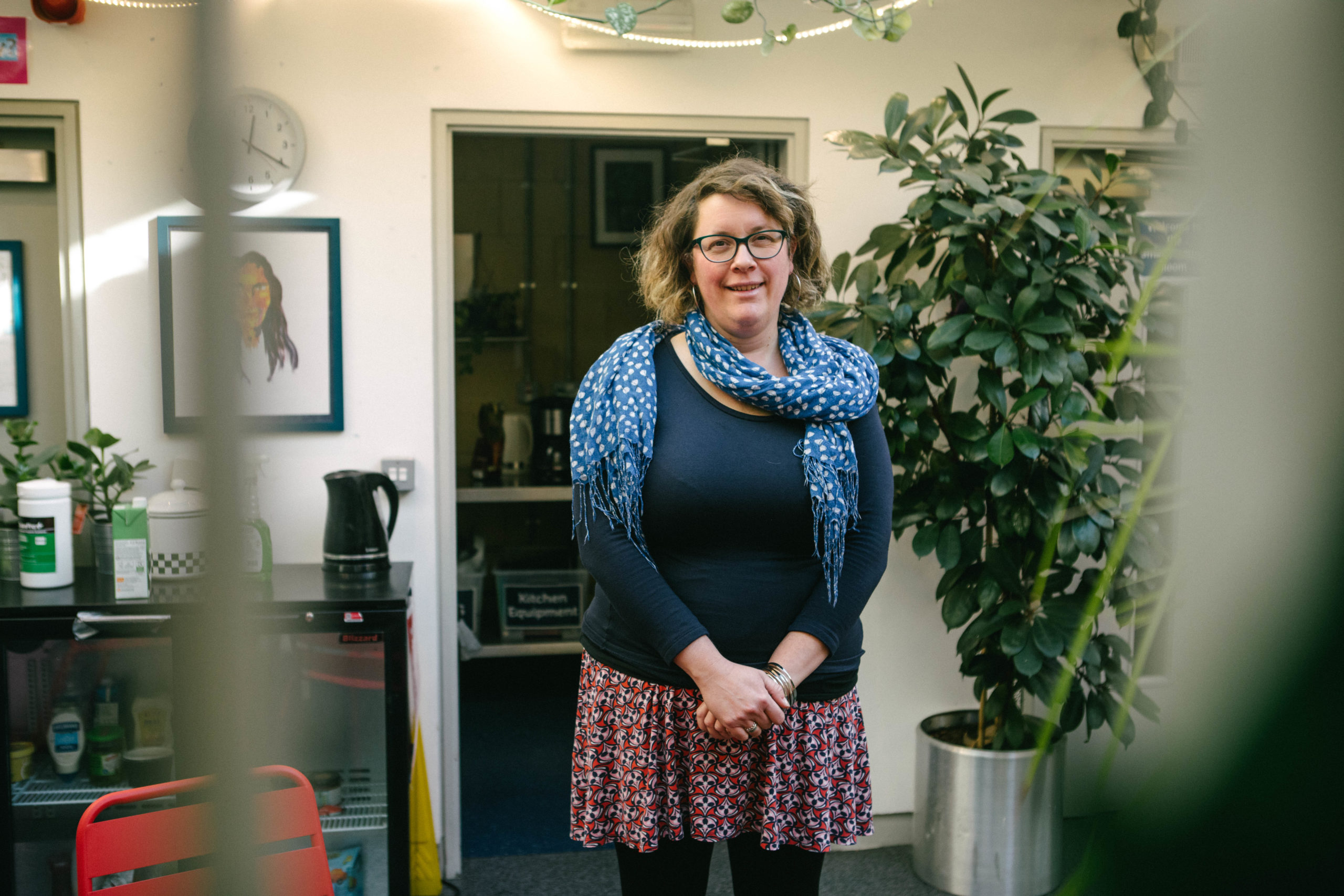The Kentish Town Community Centre (KTCC) remained open during all of the lockdowns and provided a variety of support for people living in NW5.
Running the Community Centre
Sarah Hoyle has run the centre for 4 years and has worked in the community sector for about 15 years. Working in Camden has always been rewarding for her, and she explains, “Camden is a very creative place. There’s enough energy to channel here. Whereas in other local authorities I’ve worked with there hasn’t been any energy. And therefore there isn’t a challenge.” Sarah has focussed on keeping the Community Centre relevant at all times as she fully understands that unlike grocery shops this isn’t a building that people frequent in their everyday routine.

Emergency kits
Over the Christmas of 2018, many tins of soup were donated to KTCC which prompted the opening of their food pantry in January 2019. Having this facility already set up in the building is what made it legal for them to stay open during even the first Covid-19 lockdown.
After going through various iterations of emergency support, KTCC have landed on 3 essential kits: The Clean Kit, The Essentials Kit and The Breakfast Kit. The idea behind this was to simplify and not overwhelm people with choice. Sarah expands, “It has been a really big journey of trying to find a way to give people dignity and choice in food, but not give people an overwhelming amount of choice. So it’s about curating some bags, which have good quality food in them and have a purpose. There’s the choice in the bags, but it’s not overwhelming.”
Coming across as friendly and welcoming is a key approach to how KTCC operates as they hope more and more people know about this support and would feel comfortable coming in asking for help. “One of the things I’m really aware of is the mindfulness of humans, and there’s a roll of the dice between me and someone on a very low income – living in a hostel with a couple of kids. It’s a roll of the dice. And that human approach is really important to us here.”
Food is only the tip of the iceberg
The emergency kits are accessible to anyone who needs them – the only requirement is to first become a member. Then the kits not only provide support, but begin a conversation for bigger, more sustained support. “Food is only the tip of the iceberg”, Sarah explains, “if you come to the food hub, food is not your only issue. We have a number of people who have used our food hub, and have gone on to get jobs. The reason they’ve gone on get jobs is because of the relationship they had with our centre. If you move from needing food to getting a job, that is an incredible journey and an amazing transformation.” The success of the emergency kits shows the need for a continued relationship with the people requiring support and those providing it.
Free food and wrong support
When the UK went into its first lockdown, established support networks were forced to respond quickly, and that made way for error and oversight. Sarah expands, “I think there were big problems at the beginning of the pandemic, with the sheer quantity of food that was being distributed in Camden and across London. I don’t think the food was going to the right people. And the right support was not being provided.”
With the combination of people being furloughed and a surge in the numbers wanting to help, the distribution of free food dominated the type of support being provided, and this wasn’t all positive. “By providing free food, as a sector we devalued it.” Sarah outlines, “And actually, we devalue everything in that production chain. The farmers growing the wheat in the fields to it being produced in a factory, we devalue all of it, because it’s seen as free. Giving someone a bag of food or giving someone a free meal is not really generous. You’re just giving it out. What is generous is me having a conversation with one of our food hubbers yesterday about her mental health. What was generous is just me having chats with people who may have not spoken to someone in a week.”
“It has been a really big journey of trying to find a way to give people dignity and choice in food, but not give people an overwhelming amount of choice.
Sarah Hoyle, Kentish Town Community Centre
A call for more council services in Community Centres
To build on KTCC’s approach of providing varied support for residents, Sarah calls for council services to also be based in this space – somewhere which feels approachable and not intimidating to someone who is likely coming from a vulnerable place. “In a vulnerable situation, the idea of going to 5PS, the corporate headquarters for Camden and having to explain everything in a corporate environment is not right. Whereas if you can come to your local community centre, and have a cup of tea and hang out with plants, you’re going to be in a better place, it’s going to be a better experience. My call to Camden is we need to get more council services in community spaces, so that the services are for the people.”
Photo credits: Karishma Puri
Get funding for your idea
If you’d like to start your own activity for people in Camden, you could apply for funding and support from the We Make Camden kit.
